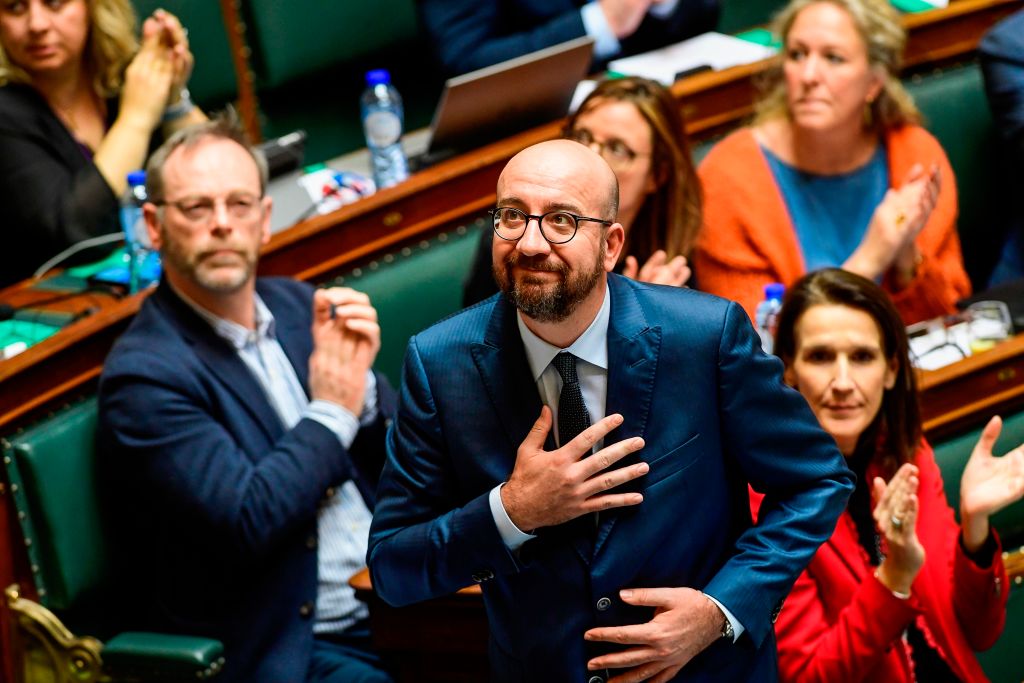Belgium's prime minister apologized to Burundi, the Democratic Republic of Congo (DRC) and Rwanda for the pain its colonization inflicted upon families with mixed-race children during its colonial rule.
The New York Times reports the apology took place on Thursday during a Parliament session, becoming the first time the country acknowledged its violent history toward African countries.
The country historically colonized the African nations for eight decades. Under the colonial rule of Belgium, segregation was law. The Roman Catholic Church forbade interracial relationships and banned interracial marriage.
Racist policies forced the disjunction of African families with mixed-race children, or "métis," in which officials kidnapped, deported and forced the adoption of the children. Historians say the kids were taken from their homes and placed in Catholic orphanages and schools. Métis offspring were also segregated from other Africans, undoing most of their traditional upbringings.
It is estimated that 10,000 to 20,000 children suffered this loss. Most of the familial ties were broken forever with children lacking birth certificates or any trace of heritage even decades after the practice ended. The gruesome system has continued to affect African families and displaced persons to present-day.
Families and children have been waiting for quite some time for the apology. As OkayAfrica reports, Burundi, the DRC and Rwanda became independent nearly six decades ago following Belgium's colonization in the early 1900s.
“Throughout Belgian colonial Africa, a system of targeted segregation of métis and their families was maintained by the Belgian state and acts were committed that violated the fundamental rights of peoples,” said Prime Minister Charles Michel to a room full of mixed-race attendees.
Blavitize your inbox! Join our daily newsletter for fresh stories and breaking news.
“This is why, in the name of the federal government, I recognize the targeted segregation of which métis people were victims" he continued. “In the name of the federal government, I present our apologies to the métis stemming from the Belgian colonial era and to their families for the injustices and the suffering inflicted upon them.”
“I also wish to express our compassion for the African mothers, from whom the children were taken," he added.
J.C. Karerwa Ndenzako, a spokesperson for the Burundian president, commented on the apology via social media, stating more needs to be done, and the African countries that were hurt should be contacted to establish a proper resolution.
"Apologizing over children snatched from their African mothers is not enough," Ndenzako wrote. "The vileness of these acts is part and parcel of a far broader history. #Belgium should dialogue with #Burundi, #Rwanda & #DRC."
Excellency Prime Minister @CharlesMichel, Apologizing over children snatched from their African mothers is not enough. The vileness of these acts is part and parcel of a far broader history. #Belgium should dialogue with #Burundi, #Rwanda & #DRC
https://t.co/RyC1EM7gO0— J.C Karerwa Ndenzako (@KarerwaNdenzako) April 3, 2019
The apology, which was unanimously adopted into Parliament last year, comes following a reemergence of young African activists demanding the European country take accountability for its violent history within its borders.
The Catholic Church apologized in 2017 for its part in the kidnapping and dismantling of the métis families, writing, “Many never knew their mother or their father, and many mothers never saw their children again. For a long time, they couldn’t fully exercise their civic rights, and a large number later found itself on the margins of Belgian society in insecurity and hardship.”
“We present our apologies to those people for the part taken by the Catholic Church in these deeds," the letter read.
In February 2002, Belgium apologized for assisting in the assassination of Congo's first Prime Minister Patrice Lumumba in an attempt to regain control over the country's resources. The New York Times reports Congo, 75 times larger than Belgium, was desired because of the riches of the country's vast land.
Prime Minister Michel has offered governmental support from Belgium to all persons in need of resources to conduct research and access archives that may assist them in finding more about their lost families, as well as to those who would like to seek Belgian citizenship officially.
Now, check these out:
A Ugandan Man Became A Lawyer And Won Back His Family's Stolen Land After 23 Years
Nipsey Hussle's Bodyguard Retires Following The Rapper And Activist's Devastating Death

